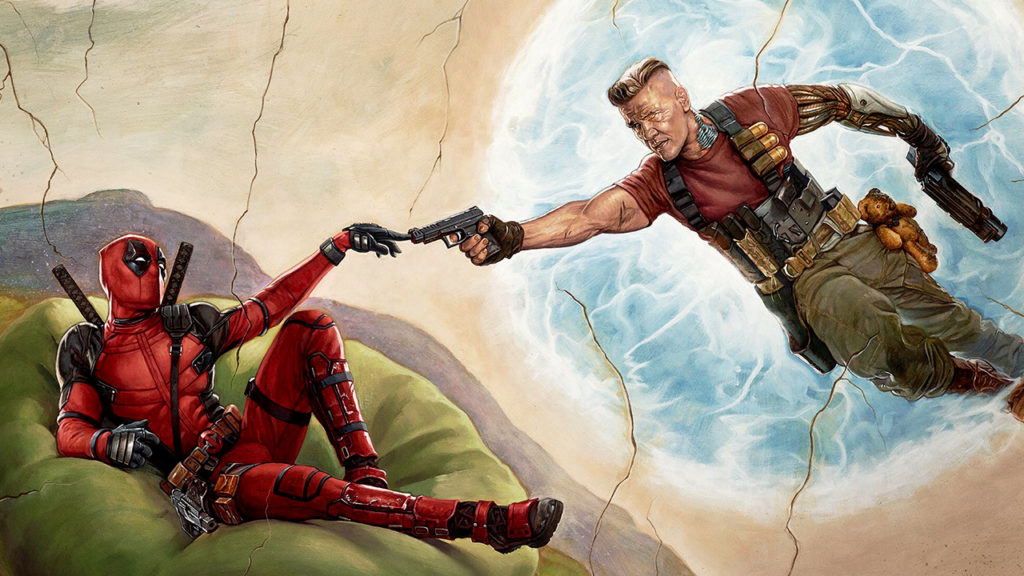Deadpool 2 retook the number one global box office spot this weekend thanks to creative marketing, a strong opening in Japan and dwindling viewership for Solo: A Star Wars Story.
Compared to its predecessor, Deadpool 2 holds its own in the box office and, not adjusting for exchange rates, is only three percent behind the original in like-for-like markets. The Ryan Reynolds vehicle is now an established film franchise, which may have given its marketing team license to go all in for strange and unusual campaign ideas.
“I think the marketing for Deadpool 2 was even more creative, daring and original than it was for the first installment,” Karie Bible, box office analyst and film historian at Exhibitor Relations, told AListDaily.
The character of Deadpool is self-aware, which gives him license to break the fourth wall, barge into other franchises and talk about pop culture that doesn’t necessarily exist in the Marvel Cinematic Universe.
Illustrating this idea, 20th Century Fox created custom DVD and Blue-Ray sleeves for Walmart shelves that replaced all film characters with Deadpool. The character video-bombed a birthday wish video from Hugh Jackman and in one promotional video arrived at the home of soccer star David Beckham. Espolòn tequila staged a Twitter takeover in which crudely-modified ads were shared, replacing brand names with its own, a person’s face with Deadpool’s and product images with bottles of Espolòn. For the music video “Ashes,” Céline Dion sings on stage while Deadpool dances in stiletto heels. When he asks for a second take of the song, Dion tells him off and calls him Spider-man.
Marketing for the film also included a wide variety of engagement tactics from answering Google questions to appearing in 7-Eleven stores via augmented reality. 20th Century Fox invited fans to join “Deadpool Core,” a parody of the old Mickey Mouse Club that offered home projects like coloring pages and Valentines.
In the US, Deadpool 2 dropped roughly 56 percent for the weekend ending June 3, but Bible says that is normal for tentpole IPs or comic book movies, especially on this particular weekend after Memorial Day. These types of movies tend to be “front-loaded,” she said, meaning that studios expect a large turnout from fans at the beginning, followed by more casual moviegoers that don’t mind waiting to see it later.
“Most people are off work on Memorial Day weekend, which is why it tends to yield big box office,” said Bible. “The next week people are back at work and it is pretty normal to see a drop.”
Bible pointed out that the original Deadpool dropped 57.4 percent in the second weekend and the sequel dropped 65.4 percent in the second frame, which she said is not a vast difference.
“Another reason for the post-Memorial Day panic may well be the poor reception for Solo,” she noted. “[Also] the Johnny Knoxville movie Action Point was the lowest opening in wide release of his career.”
While Deadpool 2‘s creative advertising strategy undoubtedly spread awareness for the film’s release, there is no hard and fast rule for film marketing, Bible said.
“Often times a great deal of hand-wringing, anxiety and analysis (Monday morning quarterbacking) happens as people attempt to put their finger on what hit or missed and why,” said Bible. “Essentially the movie business is a calculated gamble. It always has been and always will be. There is no precise formula or guarantee of success.”
With Deadpool 2 leading the global box office, studios may be more willing to take such a gamble on R-rated comic book films.
“Time will tell if the success of the R-rated Deadpool is a stand-alone phenomenon or a template for future films,” said Bible. “It will have to depend on the film. Last year Logan was R-rated and opened with $88.4 million before going on to a domestic gross of $226.2 million.”

